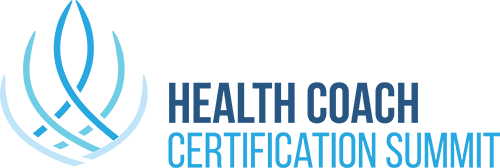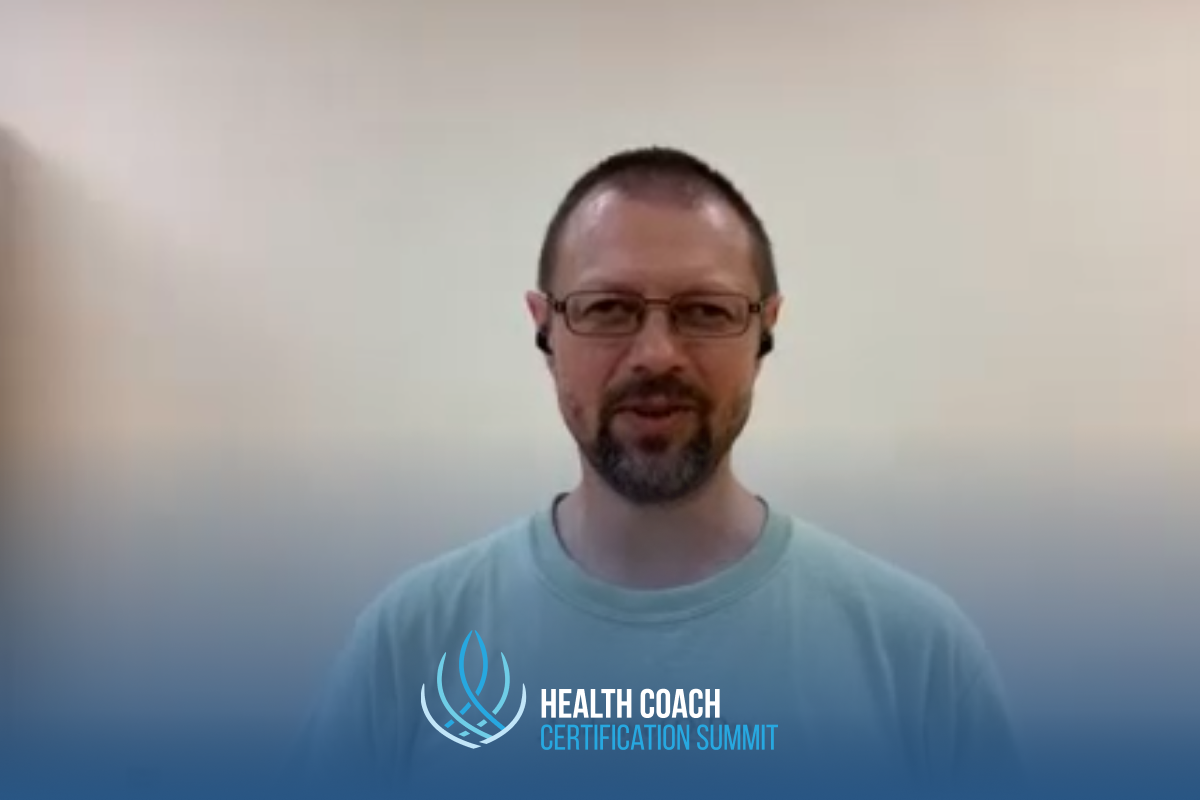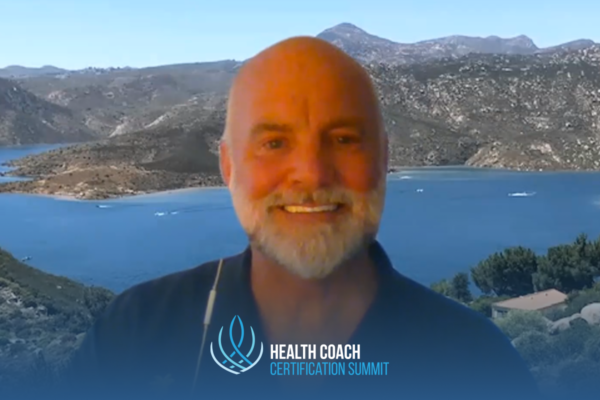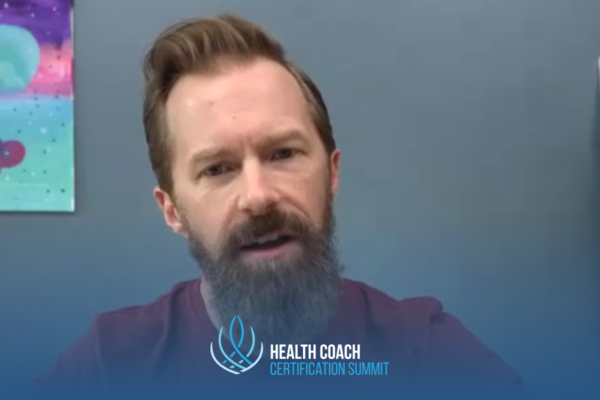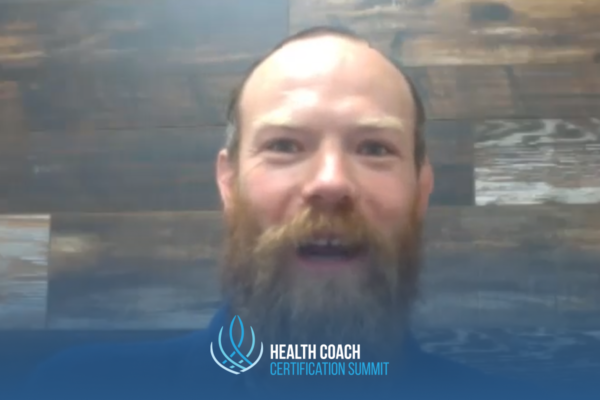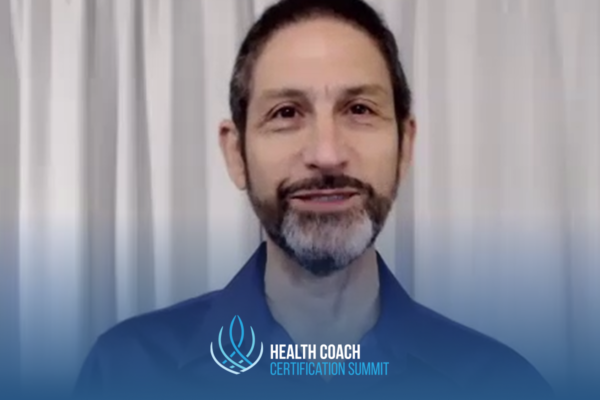Join the discussion below
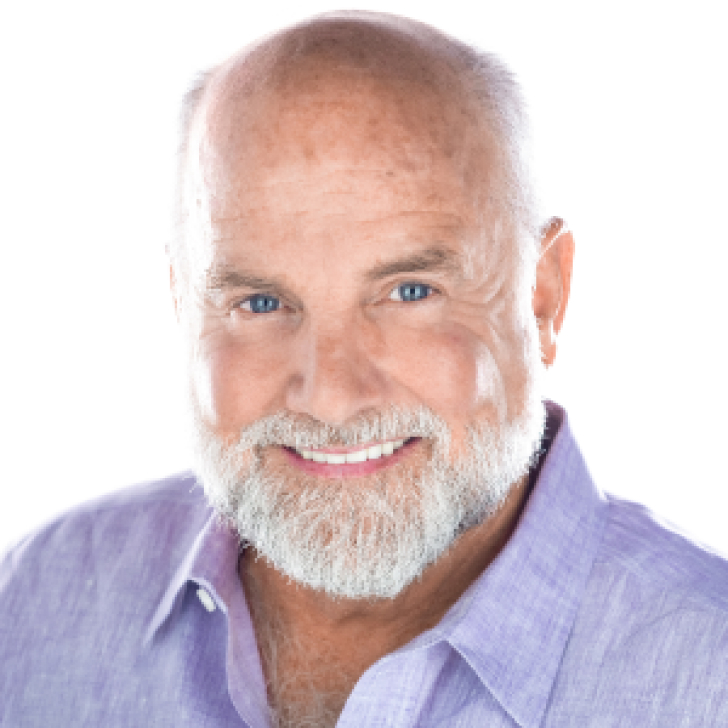
Reed Davis, Triple-Board Certified Holistic Health Practitioner (HHP) and Certified Nutritional Therapist (CNT), is an expert in functional lab testing and holistic lifestyle medicine. He is the Founder of Functional Diagnostic Nutrition® (FDN) and the FDN Certification Course with over 3000 graduates in 50 countries. Reed served as the Health... Read More
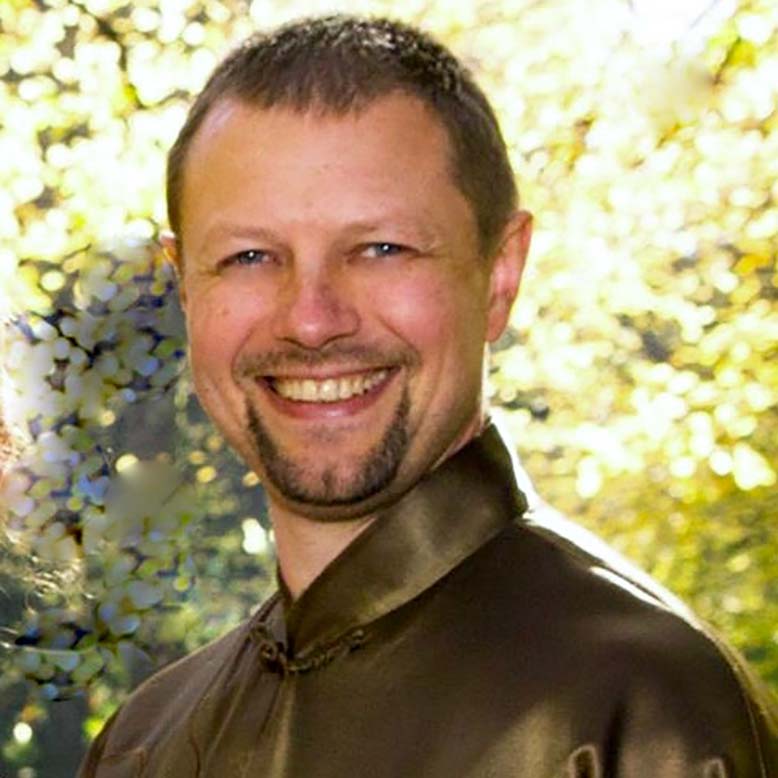
Lama Tantrapa is the lineage holder of Tibetan Shamanic Qigong. He has over 40 years of experience practicing and teaching Aikido, Tai Chi, Qigong, and other Healing and Martial Arts. An ordained Lama in the Tibetan Shamanic tradition called Bön, Lama Tantrapa received religious asylum in the US in 1997.... Read More
This program is dedicated to elevating your Qigong practice to a totally new level by learning to COACH people – rather than Teach them – which is the perfect solution for the time of Coronavirus pandemic that has made teaching classes or workshops all but impossible. This program takes just three months to complete and combines theoretical studies with hands-on experience in Qigong Coaching integrated with learning the best business practices for creating and filling your coaching practice.
This program consists of two modules that can be taken simultaneously:
1) Qigong Coaching Methodologies
2) Business Development for Qigong Coaches
Qigong Coaching represents the “missing link” between the modern methodology of Life Coaching dedicated to improving the quality of life by making it more meaningful and the ancient Energy Arts working with the energy that integrates your body and mind into a complete human being. This holistic modality not only addresses the issues on the physical, emotional, and spiritual levels, but also balances all these levels.
During your studies, you will learn to carefully guide others through discovering and exploring the human healing abilities and vitality potential that may be suppressed by the current lifestyle.
This three month program includes the following:
– Two online courses: on Qigong Coaching and Business Development
– Weekly webinars on both coaching and business aspects
– Weekly group coaching sessions and clinics
– The complete “turn-key” business system including a Qigong Coach website, a marketing funnel (complete with a webinar and online course to offer for sale) as well as the system for creating your own online courses, programs, webinars, mobile apps, and 20 other digital marketing tools
Related Topics
Chinese Medicine, Energy Blockages, Energy Flow, Health Coaching, Ill Health, Meridians, Oriental Medicine, Qigong Coaching, Self Agency, TensionReed Davis, HHP, FDN-P, CMTA, CNT
Hello gang. Thanks for coming back to the event, I’m really proud and honored today to have the Lama Tantrapa Tantrapa with us. He is the lineage holder of Tibetan Shamanic Qigong. He has over 40 years of experience practicing and teaching Aikido, Tai Chi, Qigong, and other healing and martial arts. I tell you, as an experienced martial arts practitioner this just a real, real treat for me. He’s an ordained Lama Tantrapa in the Tibetan Shamanic tradition called Bon. So Lama Tantrapa Tantrapa—Lama Tantrapa is more his title, but we’re going to call him Lama Tantrapa. He received religious asylum in the US in 1997. Since then he’s been sharing his art of being in the flow and teaching thousands of people how to experience spiritual awakening in the dream called daily life through dream yoga. Now being the lineage holder of Qi Dao, Lama Tantrapa Tantrapa founded Academy of Qi Dao in 2000. So he’s been doing this quite a while, really experienced gentlemen. It became the first and only school in the world offering professional certification training in Qigong coaching. We’re gonna be really excited to hear about Qigong coaching and what that is and how it’s differs from other things. That’s the profession he pioneered by integrating the ancient arts of Qigong and dream yoga with the modern methodologies of health and life coaching, which we know a lot about. So I can’t wait for this introduction to something new and something that might be helpful for people. So Lama Tantrapa is also known for producing and hosting over 10 years, the award winning talk show The Secrets of Qigong Masters, publishing Mastery Magazine, organizing summits of Qigong masters, and creating mastermind groups for Qigong and Tai Chi teachers, as well as yoga instructors interested in collaboration and achieving greater success together. So I’m tickled to say, hello Lama Tantrapa and nice to have you here. Thank you for being with us.
Lama Tantrapa
Thank you, Reed. It’s a pleasure to be here.
Reed Davis, HHP, FDN-P, CMTA, CNT
Yeah. Good. So, I have some questions for you and it’s a lot about your programs, it’s a chance for you to shine. I want to tell you that we have many thousands of health coaches listening in and we’ve got about 30 plus speakers on this event. What I’m trying to do is provide some leadership in the area of health coaching and how expansive it is and how helpful it could be to the world. There’s medicine and most people today don’t want to take medicine. They want to know what can they do? How can they work on themselves, become better people and healthier people and obviously more joyful people? And you have this wonderful, wonderful program—I want to get into that—but would you mind telling us a little bit more about your background first? Like you’ve got some really interesting things thrown in there.
Lama Tantrapa
Certainly. Yeah. I was born 50 years ago in the former Soviet Union and my family was involved in the practice of the tradition called Qi Dao, which is the Tibetan Shamanic Qigong. So I’ve been exposed to it since childhood. My grandfather was a master at this practice and a lineage holder. Once he passed away he appointed me to become lineage holder, so in a sense, it’s kind of skipped a generation. My father also studied and practiced it, but I guess not as in depth as I did. He spent most of his life working as an engineer for a pharmaceutical industry, believe it or not. But I definitely got exposed to a lot of other arts along the way, in the context of martial arts, in the context of healing arts, meditation practices. So after serving in the special forces in the Soviet army, I decided I need to find something better for me to do than being a career diplomat, which is what I studied for. I went to school to become a career diplomat.
I was like, “Oh, the whole country’s falling apart.” It was around the time when the Soviet Union was collapsing. So I couldn’t figure out what to do with myself and that was the time when I got approached by two Tibetan Lama Tantrapas. They had actually found my grandfather first and they talked to him and he said, “What do you want from my grandson?” [Laughing] And they said, “Well, we found that he is a very internet Lama Tantrapa and through oracle and divination, we basically wanted to connect with him and see if he is interested in pursuing this line of inquiry further.” And he said, “Well, you guys we gotta pray real good for him because he’s in the military and he’s in action now.” I guess that they paid all right, because I survived.
Even though I had a near death experience, but I figured, “Well, I might as well take them up on their invitation.” They didn’t invite me to come to Tibet. They actually invited me to come to Siberia. Siberia—which is where my family originally is from—is actually traditionally a Tibetan Budhist country for many centuries. Parts of Siberia are still traditional Buddhist countries even to this day, including Transbaikal, the area between Baikal Lake and Mongolia, and also on the West side of Mongolia on the border of Russia, Mongolia, and China, there is an area called Altai and the Altai mountains there came another area where Budhism and Tibetan Shamanism persevered for a long time, ever since the Mongol empire and Genghis Khan. So I basically continued studying and got deeper and deeper into exploring both the energy arts as well as the spiritual disciplines. Eventually got ordained as a Lama Tantrapa and then I experienced persecution. I moved to Ukraine where my parents live—
Reed Davis, HHP, FDN-P, CMTA, CNT
Wow.
Lama Tantrapa
I actually got into quite a bit of trouble with the local authorities who threw me in jail once. I also got kidnapped once and all kinds of other crappy things happen that basically made me feel like this was not a place where I would be able to survive. I talked to his holiness, the Dalai Lama Tantrapa about that. I met him twice, in 1992 and then I believe in 1994. Literally said, “Well, when the going got tough [inaudible].” I left the country and moved to India. So if you think that you can’t survive your native land, maybe you need to move somewhere. So within just a few months I received an invitation to come to teach martial arts in America with an airfare already paid for me, already visas arranged. So I felt like, “Well, that was destiny. I have to just use this opportunity to come to this new world and also share what I have to share about my experience and my knowledge.” So that’s what I’ve been doing for the last 25 years.
Reed Davis, HHP, FDN-P, CMTA, CNT
That’s fantastic. I think you started out pretty young—of course, I was even younger when I was getting in trouble, but that’s a different story. [Laughing] No, it’s amazing where you end up and where you land, isn’t it? So you landed in America and you’re having this very successful endeavor. I see on your tshirt there the Academy of Qi Dao, I can’t wait to start talking about that. Now, in our world we have—again, I practiced martial arts for many years, including some Qigong, not too much. We have a little course in Qigong included in our FDN training, but it’s not much, it’s just a little minor, kind of an introduction actually. But what is the difference between Qigong coaching, which is something you created—we’re health coaches, but Qigong coaching—and teaching Qigong or Tai Chi? Why are they not the same thing? What’s the difference?
Lama Tantrapa
Oh, that’s a really good question. As you know, training in any type of martial arts, be that Tai Chi or any other style, or Qigong for that matter, often boils down to learning certain techniques or katas or doing forms. When most people think of Qigong, they mostly equate it to practicing some forms. Essentially the teaching boils down to the teacher or the instructor downloading his or her knowledge into the student’s minds. The student just needs to replicate the moves of the teacher. If the student moves similar to the way the teacher moves, great, the students get promoted, they consider them a good student. Maybe get a belt in martial arts or what have you. In coaching, that’s radically different. Instead of a teacher teaching the student what he knows and downloading this information onto his brain, the coach actually invites the coaching client or student for that matter to discover certain principles. So I do not include any study of forms into Qigong coaching methodology. Instead, we learn about the principles, which mostly underlie old forms. We understand how to test the principles.
So instead of the student being tested by the teacher, instead the student is invited to test the principles. That’s something that is going to give the person an opportunity to really discover what works and what doesn’t work and understand why and connect the dots. In a sense you would be reinventing the wheel if you go through this process, but guess what? You’ll never forget how the wheel works if you reinvented it. In other words, it gives you much greater ability to dive deeper in understanding what works and how, and also you will retain that knowledge and be able to apply it much more likely in your life. So that’s why I say that I don’t just want to teach another Qigong style to my students, I want them to learn the Qigong lifestyle, something that they would be able to apply to their daily life and transform the quality of their lives for the better.
Reed Davis, HHP, FDN-P, CMTA, CNT
Yes, I’m starting to understand because I’ve taken some Qigong classes and basically you stand up there and you do the moves and pat yourselves on the back. [Laughing] But it doesn’t really get you to change much, you know? So when you say you model and you invite, that’s kind of what we do is invite our clients to follow a certain way of thinking and these kinds of things. So let’s look at it from the other way around. I asked you, how is it different? How is it the same as health coaching? How’s Qigong coaching the same as health coaching?
Lama Tantrapa
Well, obviously the primary objective of health coaching is to promote health. That’s what happens when people engage in Qigong coaching as well, they increase their ability to deal with health issues and also learn how to prevent many of these issues or nip them in the bud. In other words, one of the reasons why people experience ill health is because they have energy blockages in their bodies. Anyone who’s studied Oriental medicine or Chinese medicine is familiar with this concept that the Qi needs to flow freely through all the meridians in the body. If there are any energy blockages, usually associated with undue tension, that will create the stagnation and deficiency.
When that happens, that will obviously wreak havoc on your health. If you don’t want that to happen, well you need to do something about these blockages. In Qigong coaching we don’t just remove the blockages, which is what most acupuncturists what they’re doing. We actually learn to recognize that tension, which causes most of these blocks, is not something that is done to us. No, but it does tension to us. We’re the ones tensing up. If we do it unconsciously, we cannot stop doing it because we don’t even know that we’re doing it. But once we become conscious of it and we understand the root cause of this tension, then we have the freedom of choice. Then we have the sense of self agency. We become the captain of our own ship so to speak. That gives us the ability to have the most direct effect on an outcome of our health, and also be in charge of how we prevent any further health issues instead of just trying to fix what is broken. Does it make sense?
Reed Davis, HHP, FDN-P, CMTA, CNT
Yes. It makes a lot of sense because we deal with blockages as well. They are within you—I’m not sure that they’re so much like the sort of spiritual, mental, emotional, or consciousness ones you’re talking about. We remove blockages and I’m familiar with acupuncture, I have lots of [inaudible] like that. So
let’s go into that a little bit more. It sounds like kind of almost a meditation because you have to be in a conscious state, a self-aware state, kind of connected to some higher consciousness or being part of that higher consciousness. Can you explore that a bit with this? How does that fit in?
Lama Tantrapa
Well, absolutely. When you start paying attention to yourself, you actually start discovering more about yourself. Knowing yourself is the Holy grail of pretty much any spiritual tradition that I’m aware of that is worth its salt. In other words, how can it be possible for us to get to know ourselves? Well, there is only
one way to achieve that is by paying attention to ourselves because if you don’t pay attention to something, you’re not going to be able to learn about it. A lot of people don’t pay enough attention to themselves. It seems almost selfish or self-centered or egotistical to pay attention to oneself, but without doing it, you won’t be able to learn anything about yourself. The way we do it is very specific and also very embodied. So in other words, we don’t just think about it.
We actually develop the ability to pay attention to certain parts of our bodies. Usually those parts that need most attention will raise their hand, so to speak, or even start yelling at you, “Hey, pay attention here. It hurts!” If you pay attention to that area of either injury or it has been compromised in some other ways, where attention goes energy flows. That promotes healing. It’s hard to heal something without bringing some life force into that area. The healing is the insider job. It literally is done through empowering that part of yourself. So what we do is we learn how to connect with ourselves and how to empower the disempowered or injured parts of ourselves. We also of course recognize that many blockages that we develop as a result of holding tension in our body are actually caused by emotional imbalances and certain traits of our character and certain stereotypes of consciousness and beliefs and misalignment of our values.
So that’s where coaching comes really handy because we start working with our values and our beliefs. We understand where we have certain lack of integrity that manifests somatically in a form of disintegrity in the physical body. We also recognize that in order to be able to transform our quality of life, we need to learn a great deal about ourselves. That is exactly what most of my coaching clients and students spend time doing. They learn a great deal about themselves and also learn how certain principles apply to energy awareness, to the body awareness, to kinesthetic awareness. So a lot of things that we do in our practice of Qigong coaching are embodied, but we actually engage the physical body and exploration of this principles and testing because it’s not like muscle testing, but the principle is similar. Instead of isolating a part of the body where you can do muscle testing—like you’re probably familiar with muscle testing, let’s say pushing your arm.
Reed Davis, HHP, FDN-P, CMTA, CNT
We are.
Lama Tantrapa
It’s very subjective.
Reed Davis, HHP, FDN-P, CMTA, CNT
Right.
Lama Tantrapa
There is always the question is the person pushing the arm down pushing at the same level of intensity each time? Also, over time the muscle will get tired and we’ll start getting erroneous results. So there is a lot of questions about whether or not this is a trustworthy testing method when we do muscle testing. Instead of that, we use the whole body and we use our breath and our general sense of balance for testing. For example, if you have any tension in your body, it will affect your breath. It can just tense up in your hands and it would already affect your breath. Why? Because the central nervous system, when it sends signals to contract to certain muscles in the body, becomes more agitated in general and actually sends more signals of contraction to other muscles in the body, inadvertently, including the diaphragm, your breathing muscles, which of course will affect your breathing.
So instead of learning how to breathe right, coaching clients and students of mine actually learn how to use breath as the gauge that allows them to gauge how much they are tensing up or relaxing when dealing with certain issues, with exploring certain courses of action, or even holding certain thought form in their consciousness. Then when we remove the obstacles on the path of natural breath, by learning how to focus on things we resonate with, or courses of action that we resonate with, or physical alignments that we resonate better with, the breath will naturally become smoother and deeper. We don’t have to fix it. We don’t have to breathe right. We actually need to remove the unnatural obstacles in the way of breathing to become natural and instantaneous and what can be healthier than being natural. So in a sense, we’re learning how to be natural, but most people who’ve grown up in this or many other cultures literally learn how to be contrived or not quite natural.
So we are rediscovering that sense of naturalness and spontaneity. Not becoming childish, but becoming childlike in terms of holding less tension in our bodies. If you look at the way that most three or four year olds hold themselves, they are really relaxed! They are not trying to pretend somebody who they’re not. But when we go through the process of domestication, so to speak, we learn how to pretend somebody who we aren’t. The more we try, the more tension we develop, the more we cause ourselves grief because we develop energy blockages and we stifle the flow of Qi through our system. So we learn how to remove those obstacles and how to feel that flow and how to be in a flow. That’s why one of my first books was actually titled The Art of Being in the Flow.
Reed Davis, HHP, FDN-P, CMTA, CNT
Yeah, that’s beautiful. I love that expression anyway. You kind of know when you’re in the flow, whether it’s in a physical sense, you’re doing some kind of—you could be doing physical manual labor and work. You know when you’re in the flow ’cause it seems easy, even though you’re doing very strenuous work. The same thing in business, when you’re in the flow you’re investing and it’s coming back to you in some way or other. You’re leveraging that investment and it’s just working for it. You could be sitting at your desk and be in the flow. I wonder—so we all have experienced it, but what you’re saying is this Qigong coaching is a way to help others experience that, invite them to feel that way. It starts with the breathing kind of, and I totally get that. We’ve always been told, look at the way a baby breathes and now kind of look at yourself. It’s like, “Wow, it’s two different things.” Personally, I always think of a dog. The way a dog goes [sighs], and then they go into this natural rhythm and they’re totally in dreamland somewhere chasing rabbits or whatever they’re doing in their dreams. So how did that come to you that this was different than regular Tai Chi teaching?
Lama Tantrapa
Well, I operate at Academy of Qi Dao since 2000 and alongside I also developed one of the first clinics dedicated to Qigong therapy in the United States, Portland Qigong Clinic. I was doing therapy, I was offering sessions to clients who would come for health reasons, and I realized that they were not doing any homework. During the sessions they would benefit a great deal. They would transform, they would improve right in front of my eyes but then I would give them some homework, some meditation practices to do, some lifestyle changes to do, some self awareness to practice. Then I would see them the following week or two and they would backslide. So I started investigating why that was happening and of course I found out that they didn’t do any homework. Most people didn’t do the meditation practices that I prescribed. Most people didn’t implement those lifestyle changes or postural alignments and things like that. I started wondering why is that? Why is it that also people who study Qigong or Tai Chi or similar disciplines, even yoga, often do not practice it on their own? They just wait for the next class.
Basically they only benefit from these disciplines in the class. But what about the rest of the week? If you take one class a week, what about six days and 23 hours between the classes? Don’t you want to experience benefits of this wonderful practice as well? Well, that’s what really matters. But most people didn’t do the practices because they were not the ones who decided to do that homework. I was the one prescribing it to them. I was the one telling them what to do. As you can imagine, most people don’t follow through on those decisions that they didn’t make. So I started exploring alternative ways to working with people, and I stumbled upon this awesome community of coaches. I started learning coaching from well known teachers and experts, from Tony Robbins and Brendon Burchard, to Bill Baren and Eben Pagan and a number of other great coaches. I still continue. I continue exploring coaching.
I always, at least once a year, sign up for a new training program. I just graduated from a program on group coaching with Michelle Schubnel, for example. It’s an ongoing process of learning, even though I’ve been doing this ever since 2005, when I pioneered this profession of Qigong coaching. I still continue learning each and every day. That’s something that also is the role modeling that I offer to my students and clients: never stop learning. Every coach needs a coach. Why? Because you cannot become a better coach if you’re not receiving any coaching. At the same time, you also have to be a role model of what you try to offer to your students or coaching clients. So if I talk about being in the flow, I need to demonstrate that ability to be in the flow at will. I need to be in the flow myself, if I’m not in the flow, talking about that would be just talking the talk, but not walking the talk. What we do in Qigong coaching is literally learn to embody these principles, we learn how to walk the talk instead of just talking good talk.
Reed Davis, HHP, FDN-P, CMTA, CNT
Yeah. That’s an expression I use daily and one of the best tips I have for health coaches is—and I’ll use some of yours now—you can’t invite anybody into do something that you’re not doing, or at least giving it a really good shot. On the health continuum, I’ve said many times on these interviews that if we’re going up the stairway to health, I don’t know anyone at the top really, we’re all just on the stairway. And we’re kind of reaching up and we’re getting that mentoring from those that may be a few steps ahead of us, but we’re also reaching down and bringing up those who have a lot more steps to go than we do. So that’s a great metaphor for that. I think you were very astute to know—most people might think of Dalai Lama Tantrapas as people who just sit around meditating. [Laughing] It’s good to know that they’re actually thinking, working, living here in the modern world, they’re doing things and you know—you’ve done this amazing favor for everyone by creating that. So we thank you for that.
Another question I think people are going to be asking is, how do you integrate these things? How does Qigong coaching integrate with the ancient arts? You know, like yoga, Tai Chi and, and Qigong, of course. How do you integrate all of that with modern technology? ‘Cause me, I teach a course in functional lab work. So we go deep into—we know about mental, emotional, spiritual, mind, body, and things, but we also look at a lot of data. We do blood testing, saliva testing, urine testing, stool testing. We’re looking for some of those. It’s just a way of identifying. For us, Lama Tantrapa, it’s healing opportunities. I’d love to explore the combination of the ancient arts regarding those healing opportunities—’cause you already mentioned breathing and directing energy and things like that. But tell us more about if we were able to identify healing opportunities… This person their hormones are out of balance. Their immune system is overactive. Their digestive system isn’t working. They’re not assimilating food. And so on, their livers clogged up, it’s not detoxifying properly. How do you combine these things?
Lama Tantrapa
Well, for example, you mentioned the immune system. One of the things about immunity is that it is a somatic expression of certain psychological states that we’re in. So if you are, for example, really reactive emotionally or psychologically, what do you think your immune system is going to be like? You’re going to have an overreactive immune system. You’re more likely than the average person to experience anything from allergies to autoimmune diseases. If, on the other hand, your immune system is sluggish. For example, it doesn’t deal with viruses and infections that enter your organism or main audit and take care of the cancer cells that propagate in your body and allow them to turn into tumors. That means there is also a psychological and emotional component where you basically are too friendly to all those cells or the microorganisms that are invading your system.
So what we’ll do is we learn to find optimal balance. Not too much Yin, not too much Yang, using the Oriental philosophy, or in other words find the optimal functioning where homeostasis is being supported at maximum, where your digestive system is not compromised because your hormones are out of whack, for example. If you are, let’s say constantly stressed, you’re going to be producing a lot of cortisol. Cortisol inadvertently will be affecting your digestion and actually often leads to [inaudible] events, such things as leaky gut syndrome or inflammation throughout the body. We don’t want that to happen, thank you very much. But when you don’t understand the root causes, if we just try to suppress cortisol without addressing the reasons why we produced so much of it, we will still be producing it. We will still be in a stress mode. We will still be potentially posing ourselves to adrenal fatigue and chronic fatigue and similar issues that are associated with being chronically stressed. But how do we get stressed? What is it that we stress out about?
We need to really dig deeper into understanding why we react to stimuli in a certain way. As we develop a different approach to reacting to stimuli, instead of being reactive, we actually learn how to become responsive. Something really amazing happens. A responsive consciousness and responsive mind manifests somatically as a responsive immune system that is not reactive. It’s not going full bore into the self defense mode whenever the pollen, for example, enters your sinuses. But at the same time, it’s not too sluggish so it is capable of responding in the most optimal way. The same applies to, for example, emotional tension or emotional armoring that people often develop in their bodies. Most people have some undue tention. As a matter of fact, if you have a personality almost guaranteed, you have some tension in your body because the personality manifests physically as a certain way of presenting yourself to the world. It’s like a mask that we all wear. Personality, the word, comes from the word persona, which in Greek theater in ancient Greece actually was supposed to be like a mask. Apparently those actors weren’t very good actors. [Laughing] So they have to wear a mask. It was either a smiley face or a sad face or something like that.
Reed Davis, HHP, FDN-P, CMTA, CNT
Right.
Lama Tantrapa
Well, if that mask is something that you present to the world, but you don’t really feel yourself that way, your identity or the inner side of that mask that fits your face is different from your personality, what other people perceive you to be, or how you present yourself to others. The greater the discrepancy between the identity and personality, the greater there’s going to be struggle and internal tension. We basically are going to be constantly pretending to be somebody who we are not, which takes a lot of energy.
Reed Davis, HHP, FDN-P, CMTA, CNT
Yeah.
Lama Tantrapa
If you constantly do it, you are going to be constantly struggling against your authentic flow. So what we do is we learn how to stop struggling, how to uncover this unconscious strategies for struggling against the flow that are associated with different personality types. We identify which of these strategies we utilize and then we exercise the freedom of choice. If we become conscious of these strategies, then we have the freedom whether to keep doing it or to stop doing. We constantly test this as to whether or not we hold ourselves differently in our physical bodies. So with a very precise way of looking at the physical structure, we can actually tell what state of consciousness the person is in, what energy center he or she is using more, what is the likely reaction that any stimulus would engender in that person? What they are capable of, what to expect of them. Basically you can read the person’s mind by just simply observing their body. It goes way deeper than just understanding body language or just basic holding patterns, but we have to start somewhere. So we have to start with understanding and holding patterns and body language and translate that into energy awareness. How does this have to do with energetic state? In other words, we look at the whole human body as a unified organism, combining physical body, Soma, and the psyche, the mind.
Just like the proverbial coin that has two sides, heads and tails, but what we really pay attention to is the gold that the coin is made of. The substance that a coin is made of. What is that material and how can we work with that energy? Because that’s really an energy that keeps the mind and body in one living organism, the life force. We work with a life force that allows us to affect both mind and body and bring them into alignment. When the person experiences alignment, often they say for the first time in their life, they feel the most profound sense of wellness and wellbeing, and they are no longer struggling against the flow of things, like against the Dao, if you will. They learn how to do this on a consistent basis. So they create a lifestyle where they can be in the flow at will. Now that is, as far as I’m concerned, the most healthy and intelligent way to be.
Reed Davis, HHP, FDN-P, CMTA, CNT
Yeah, I understand I think. I mean, I don’t practice as much as some people, but I am pretty self disciplined, but you’re bringing a whole new light and meaning to that phrase. A self-disciplined person controls their urges, they can do things that other people won’t do. You can accomplish a lot with self-discipline and you also stay out of trouble that way. If someone says something to you, you wouldn’t punch them in the mouth. You’ve got too much discipline for that. I mean, unless they really deserved it, right? [Laughing] I’m just kidding. But you know, you get
Lama Tantrapa
You actually develop the ability to respond instead of reacting. A reaction, by definition, is action against oncoming force. It’s the school textbook definition of reaction. Now, when we react emotionally or physically to another person, we’re basically pushed back. So if a person pushes our buttons, we start pushing their buttons and that becomes the button pushing fiesta or contest. Instead of pushing back or reacting, we learn how to respond to what other people are doing or other circumstances in our lives, including our own health conditions, including our own emotional and mental processes, even our dreams. We actually incorporate this study of dream yoga in Qigong coaching. What we do is we learn how to recognize that everything is energy. Anyone who’s graduated from high school, kind of theoretically at least, recognizes that everything is energy. E=mc2, well Qi=mc2. That mysterious life force that we’re talking about, everything is made out of it. What we learn is how to pay attention to the flow of energy.
If someone is pushing you or punching you, for example, using the context of martial arts, you don’t have to block, you don’t have to go against them. What if you actually do this? [Inaudible] is coming and you just simply redirect or move yourself out of harm’s way or turn and let the punch slip. In other words, you develop the ability to flow with that energy projection, rolling with the punches. Now, if you learn how to roll with the punches in the physical body, you are much more likely to be able to embody that whenever you go into your boardroom meeting or have a relationship issue at home or any other dynamics where you could use the response instead of being reactive. If you do that, you do not experience stress. People who are reactive are almost always stressed out, or it’s easy for them to just trigger the stress response because they’re on the verge of the stress. They’re kind of a hair trigger, but if we learn how to respond, something really amazing happens. We just roll with the punches and we smile and we breathe easily and deeply. When other people would become really stressed out or reactive, we actually can function at a much higher level. So we’ve become more functional human beings. When you compare the functioning of a person who is reactive, for example, in the business context, as opposed to the person who is responsive, they’re responsive in the same business context, which one would be more likely to be successful?
Reed Davis, HHP, FDN-P, CMTA, CNT
Yeah, thank you. Again, I’m getting it and I’m not unfamiliar with a lot of things, but I need to ask you now—to have this thing move along a little bit—about your certification program. Which is different from other programs. So tell us about that. Why is Qigong coaching certificate program different from all the other programs?
Lama Tantrapa
Well, there are several reasons of why our program is different from other health coaching programs. First of all, because Qigong is such an embodied discipline. The way that I approach the study of Qigong is especially physically oriented. We’re not just imagining, visualizing energy—although that also has its own place, but we also learn how to pay attention to our physical bodies. We learn how our physical bodies usually don’t lie. We can tell ourselves all kinds of lies about our lives, about our relationships, about our state of affairs, but our bodies don’t lie. If we pay attention to our physical bodies and align our mind and our body in such a way that they are not in conflict, instead they’re in concert with each other, something amazing happens. They actually experience harmony and that harmony translates into everything else that you’ve experienced in your life.
When we experience harmony within, clarity of purpose, and supreme confidence, it immediately starts translating into greater clarity of the way we communicate with other people. Greater confidence that we deal with any challenges in our lives. Greater resilience. Most importantly, we learn how to develop a lifestyle based on this new way of thinking about ourselves, developing quite literally a new sense of identity. Now, when we do that, we constantly use energy awareness and testing methodology that I mentioned to check whether we are on the right track. So we don’t fool ourselves.
Even when the coach says, “I wonder if this is gonna work better for you.” Or, “Would you rather do that?” It’s up to the coach and client or the person who’s learning this methodology. It’s up to them to test, instead of just taking the coach on faith or doing what they’ve been told. You’re constantly being encouraged and empowered to make the most intelligent decisions. You develop the most intelligent decision making mechanism based on energy resonance. Where you are not just thinking in terms of good and bad, right and wrong. You actually develop ability to sense energy resonance and since everything is made of energy in our world, you have developed the ability to make decisions apply to anything. Just a simple example: If you eat food that you don’t resonate with, even before you put the first bit of that food in your mouth, your body already reacts to it. If you pay attention to how the body reacts to the food, you will know whether or not this is the right food for you to consume. If you feel like your body is relaxing and you have a sigh of relief and you feel like your breathing becomes deeper and smoother, your body resonates with it. It can apply not only to the food, but to virtually anything.
Reed Davis, HHP, FDN-P, CMTA, CNT
Fantastic.
Lama Tantrapa
When you resonate with something, you’re also develop the ability to feel the flow, because when you resonant with something and you actually move in that direction, how does it feel?
Reed Davis, HHP, FDN-P, CMTA, CNT
Good.
Lama Tantrapa
It feels effortless! It feels like you’re not struggling anymore. Now, if we learn how to stop struggling against the flow in our lives, how will it affect our health? So that’s definitely a unique approach when we bring what we’re bringing into health coaching industry. Another thing that we also do is we focus a great deal not only on the methodology of Qigong coaching in our certification program, we also focus a great deal on the business development. Literally just as much time and energy and resources are spent on developing, understanding, and expertise in Qigong coach methodology and how to coach people using Qigong coaching. We also spend just as much time and energy on developing business expertise. So in our program, we learn how to become a successful Qigong coach, how to develop your sphere of influence, how to identify not only your niche, but create your signature program, how to establish yourself as an authority in your field, how to develop online presence, how to work with people using modern technologies, just like we’re talking right now and using video chat and other video communications.
Reed Davis, HHP, FDN-P, CMTA, CNT
Remarkable.
Lama Tantrapa
It’s amazing! We’re in the 21st century, but many people are still not comfortable with using online technologies or don’t even know how to start a blog or create an online course. We cover all of this. As a matter of fact, I even provide the graduates from our program, a new website designed specifically for Qigong coaches. So you just put your name and your bio and your headshot, your logo into it, and your contact information. Basically the meat of the website is already put together. That’s not all, you also receive a marketing funnel complete with a webinar that explains the benefits of Qigong coaching and leads to a marketing—like a lead magnet. Basically a simple online course that you can actually sell. So you can offer it for free or you sell it. You don’t even need to create your own online course if you don’t want to, or don’t have time, you just hit the ground running right away. All of this is included in our program.
Reed Davis, HHP, FDN-P, CMTA, CNT
So this would be for health coaches or people who want to help others. I mean, it sounds like the practice itself would be good for everybody. Let’s talk about that. Who it’s for and what are the prospects for your graduates if they do all that?
Lama Tantrapa
Well, first of all, who is it for? If you have studied martial arts
Reed Davis, HHP, FDN-P, CMTA, CNT
Yes
Lama Tantrapa
You will totally dig this because you will immediately see how principles that apply to martial arts also apply to the healing arts, also apply to personal development and to relationships and business communications. Most people don’t think about it this way, but once we start exploring this deeper, we begin to understand that if you want to have any power in your punch, for example, you need to stop using force. You need to start using power. Using power rather than force is also a profound philosophical transition. Then it starts bleeding into your daily life and all other stairs of your life. Would you be a powerful martial artist or would you rather be a forceful martial artist?
Reed Davis, HHP, FDN-P, CMTA, CNT
Yes. Well, mine was Jujitsu, so it’s all about power. We didn’t do any striking, although I also boxed, but the Jujitsu was a real discipline, you know? You’d be surprised. [Laughing] Yeah, I bet you know all about it.
Lama Tantrapa
I’m very familar. If you apply this, for example, to business, would you rather be a powerful businessman or a forceful businessman?
Reed Davis, HHP, FDN-P, CMTA, CNT
Yeah. It seems—between you and me, it seems obvious that the power—be powerful of course. You can reach the most people. You can do the most good in the world. Let’s go on to what are the prospects for the graduate of your program?
Lama Tantrapa
Just to round up that answer, not only in martial artists, but also people who study other disciplines, be it yoga or meditation or coaches. Any coach would benefit a great deal from learning the methodology of Qigong coaching and also receiving tremendous support in terms of business development. If the person, for example, is already a successful Qigong teacher, for instance, they cannot teach classes these days, they cannot teach workshops, they cannot lead retreats. Why? Because of the coronavirus pandemic. So they’re pretty much unemployed or they cannot really do most of the things that they used to do.
Reed Davis, HHP, FDN-P, CMTA, CNT
Right.
Lama Tantrapa
How do I know? I interview a lot of them. I have the talk show called The Secrets of Qigong Masters and I organize Qigong summits and mastermind groups. So I am constantly keeping the hand on the pulse of my industry. I know they cannot really do their work. Now, what if they learn how to become a Qigong coach? All of a sudden they can work with people from anywhere in the world as long as they speak the same language and have internet connection. If you’re, for example, an acupuncturist or other health professional who received training in Oriental medicine or similar holistic discipline, you also would probably be able to benefit from working not only with people in your locale. There are only so many people in your town, in your city, in your neighborhood, who would come to your clinic or who would seek your services because you cannot really expand much more or expect people to travel hundreds of miles to see you.
Unless you’re absolutely amazing! And that may be the case. But what if you could actually work with people also long distance? Perhaps as an adjunct to your holistic healing practice. Many of my graduates are not only doing Qigong coaching 100% of the time, full time. They combine it also with other practices, be that a practice of acupuncture or massage or natural medicine. Many of them are [inaudible] healers. Many of them are singers or artists because they want to learn how to be in the flow. They went through my programs and now they offer this to other singers or to other artists. Many of them are lawyers, believe it or not. A lot of my students actually are lawyers. Would your want to be in the flow when you go to the court of law to present a case? Of course. If you’re not in the flow, you’ll be bumbling and stumbling and will not be very effective
Reed Davis, HHP, FDN-P, CMTA, CNT
Sure.
Lama Tantrapa
and very successful as a lawyer. Plus lawyers and many people in similar fields are constantly stressed out and drink alcohol and they literally wreak havoc on their health. What do you do if you don’t want to burn out? Well, you need to actually change your lifestyle in alignment with your highest values. Well, we need to actually know what our highest values are. So a lot of people who work with me in this capacity actually integrate Qigong coaching principles into other modalities. They also, of course, offer Qigong coaching as a standalone service. Many of them do. Those of them who are particularly successful also start leading workshops, also start developing their own programs for people perhaps dealing with particular type of issues, be that parenting or stage fright or other issues. A gamut of issues can be addressed with Qigong coaching. But most importantly, they learn how to become more functional human beings in terms of physical functioning, emotional functioning, the functioning of their immune system, their relationships and developing greater self knowledge. That is the key to enlightenment, to awakening in this dream that we call our life. That’s what I’m mostly interested in! That’s what I support my students and clients to experience as well.
Reed Davis, HHP, FDN-P, CMTA, CNT
Remarkable. I’m going to change gears here just a bit because we’re on a hard break coming up. So, what do you think are the most—what separates professionals from others, in your opinion? The ones who are able to help the most people, I consider that being a professional, instead of being a hobbyist. You could do this as a hobby. You can do health coaching as a hobby. It’s a great hobby. Generally, though, for me, hobbies cost you money. I have hobbies, and they cost me money, but my profession makes me money. I couldn’t imagine a lawyer saying, “Well, I’m just a hobbyist.” No they’re damn professional and that’s how they make their living. So how do you—what do you think separates one from the other? Integrating the Qigong coaching?
Lama Tantrapa
That’s a really good question. What’s the difference between amateurs and professionals? Well, amateurs by and large dabble and do not go very deep. If you go deep, you almost are operating already at the level of a professional, the only difference is that professionals charge money also. At least most professionals do. Many professionals work for themselves. So they also are their own boss, which is a great benefit from being a health coach or Qigong coach, because you will work for yourself.
You’re your own boss. It’s a dream job for most people. How to transition from avocation to a vocation is a really important transition question and we need to do this while we are going through the certification program. Because as you start the certification program, if it’s a hobby it costs you money—or I would say, you invest money into it. But how do you receive return on investment? How do you become a professional in it? Well, in order to graduate from my program, I require that my students would have a minimum of 25 documented Qigong coaching sessions. If you have 25 documented Qigong coaching sessions over the course of three months, or however long it’s going to take it to actually coach 25 people, if you do one session per person, that’s 25 people. You can also coach 5 people, give them 5 sessions each.
Reed Davis, HHP, FDN-P, CMTA, CNT
Right.
Lama Tantrapa
You don’t want to charge them anything. If you don’t charge them anything, you just explain to them, “Look, I’m going through the certification program. I’m learning how to become a Qigong coach. Would you like me to help you to the extent of my ability? I will be getting better and better at it as I continue working with you.” Well, some people will say yes, some people will say no, even if you’re not charging anything for it. But as you do this, you first learn how to enroll people as your coaching clients. Second, you learn how to coach them. Third, if you give a person several coaching sessions, free of charge, you can ask them, “Well, I have given you several sessions. Now I’m graduating from my program. I want to actually start my practice. Would you like to continue working with me?” Some people say yes, some people will say no. Those who will say yes will actually become your first coaching clients. So you literally will graduate from our program and already have a coaching practice built for you.
Reed Davis, HHP, FDN-P, CMTA, CNT
That’s great. That’s fantastic.
Lama Tantrapa
It’s an important transition that many coaches struggle with. How do you transition from getting certified to actually being successful as a coach? Well, we actually take care of it. It’s embedded in our program. When you go through it, you will experience this transition and we will walk you by the hand so that you make this transition successful.
Reed Davis, HHP, FDN-P, CMTA, CNT
That’s really innovative and remarkable. Lama Tantrapa, well, thank you so much. We’re going to put all the information to get in touch with you into the show notes of course. We’re gonna encourage everybody listening right now to go and purchase the recordings ’cause you know you’re not going to be able to watch all of these things in the free time allotted. Once we’re off the air, then your opportunity is gonna go up to another price. So get it while it’s hot and at the best price you can. You can listen to the Lama Tantrapa over and over again and not to mention all the other speakers, of course. Also there’s just a tremendous number of freebies we’re giving away.
I think we estimated the value of the freebies at about $2,500, just for the price of paying your VIP pass sort of membership thing there. You’ve really brought a lot of light to the idea of coaching from a more centered and spiritual manner, a more conscious manner. The idea of being—instead of reactive to be responsive is just an art form in a sense. I know they consider Qigong and Tai Chi and things to be a martial art and you’ve explained it very well done. Stuck up for yourself real good there, Lama Tantrapa. With all of the most respect I say that. I want to thank you again. Would you like to leave some parting words with our tribe here? You’re probably speaking to 20,000 people right now.
Lama Tantrapa
Absolutely. One of the things that I would love to invite all our viewers and listeners to do is to take advantage of the free gift that I’m offering. I’m offering an online course, Qigong Fundamentals, that literally introduces you to the fundamental principles and practices that will get your Qigong practice going. If you have already studied Qigong, you will discover an alternative way of looking at many of these approaches because my approach is quite unique and distinct from the way that most people practice Qigong. And qigongcoaching.com of course is my website and I would encourage you to dive into it because it has a wealth of information. You don’t have to even sign up for my coaching program. You will be able to benefit just from reading articles and watching the videos on it, and also read through the testimonials. There are dozens of testimonials of people who’ve gone through our programs, who have received our coaching, and you’ll be surprised and amazed by the transformations people experience as a result of Qigong coaching.
Reed Davis, HHP, FDN-P, CMTA, CNT
Thank you so much. You can count on a lot of people including me to take advantage of that and come around to looking at your full blown certification program. I think it’s amazing. I think it’s a fantastic integration with what health coaches want. They want to be joyful and happy. They know that health is a way to get there or a good place to start and so I just can’t tell you how much I appreciate. So glad that we found you and so glad you’re willing to participate in this event. So thank you very much.
Lama Tantrapa
It was my pleasure. Thank you so much Reed.
Downloads
